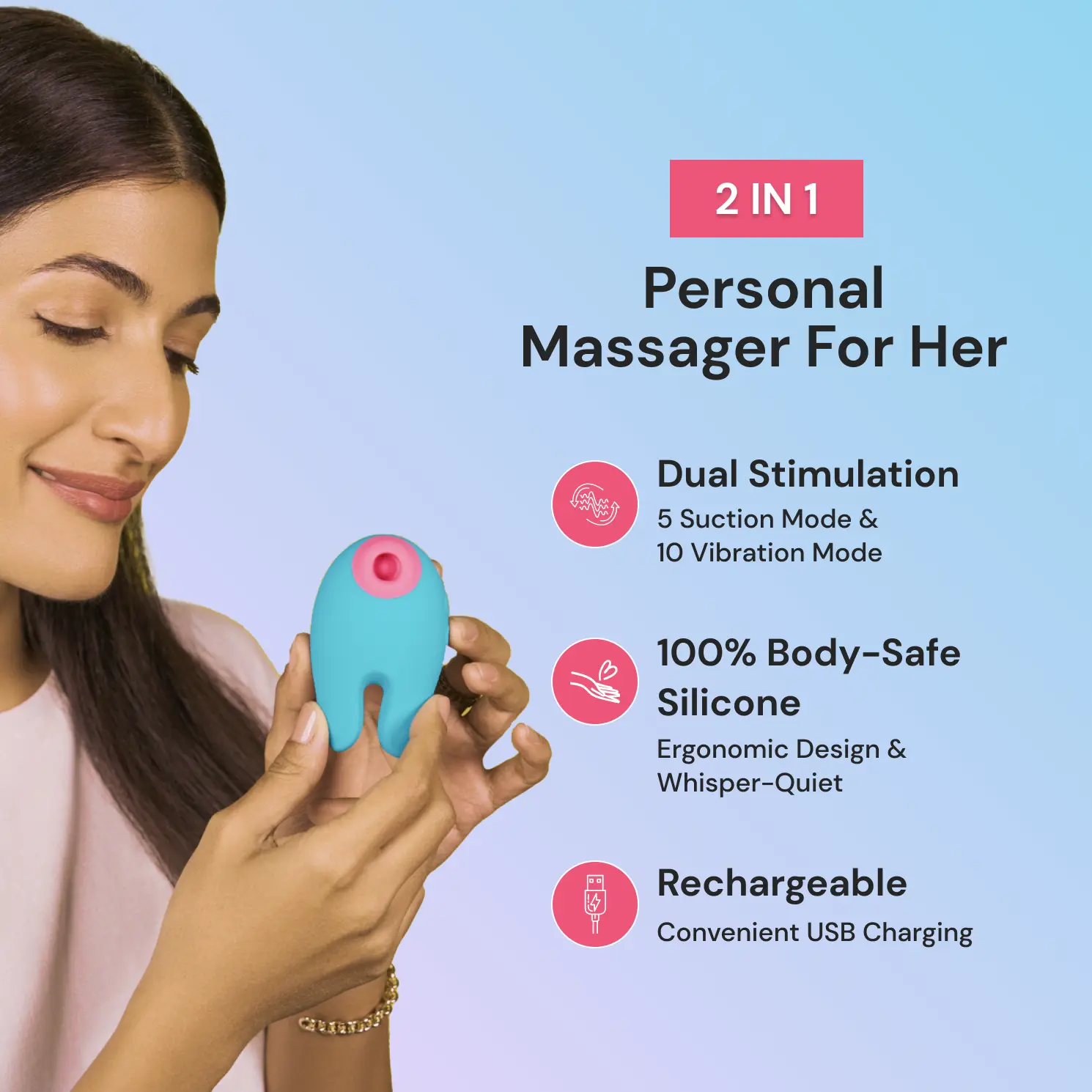Are you familiar with that warm and fuzzy desire to be loved and cherished? In the modern dating game, you might end up finding yourself in a situation where there is love but the whole relationship isn't defined.
It's like a fuzzy grey area of a relationship where you're more than friends, but there's no promise of a true partnership. Ouch! This truly must feel more painful than it sounds.
The truth is, that situationships often have an expiration date. Either they blossom into a committed relationship or one person starts feeling stuck. If you find yourself in murky waters, it is important to prioritise your mental health and know when it's time to move on.
Managing a situationship can be difficult, but if you're ready for something more meaningful, getting closure on the ambiguity is the first step. Wondering about how you can do it? Let's read along:
What Is A Situationship?
To be honest, situationship is best defined as the grey area of a relationship.
It is a romantic entanglement that involves affection, physical intimacy, and time together but lacks any real commitment or clarity.
Simply put, a situationship is like dating without the labels while retaining the freedom of being single.
People who are in a situationship usually think that “complicated" is the best state to define their equation with their partner as well as their state of mind.
The advent of situationship can be attributed to the rise of online dating which has transformed dating game like anything. After all, when a person is presented with so many options, they may inherently find it difficult to commit to one.
Signs You’re in a Situationship
Before you learn about dealing with a situationship, it is important to understand exactly what it means to be in one. Look for these situationship signs if you wish to get clarity about your status with your partner:
- Lack of clear commitment
If you feel that relationship is bordering along the lines of a casual hookup rather than a committed partnership, you might be in one. Your relationship in this scenario may lack exclusivity which can further exacerbate the whole thing.
- Involvement Of Other Partners
This one is an absolute deal-breaker! If you feel that your partner is romantically or physically involved with one or more partners, apart from you, you are in a situationship for sure.
- Uncertain future conversations
If you ever try discussing your future with your partner, you will be met with unenthusiastic and vague answers or the discussion might even be avoided altogether.
- Avoiding labels
In a situationship, you both will enjoy the perks of being together (physically and emotionally) but you won't be putting a name to it. Labels like "boyfriend" and "girlfriend" might sound too technical or burdensome to you or your partner. The absence of clarity will leave you uncertain about where you stand.
- Feelings of confusion or frustration
The most noteworthy sign of a situationship is that you will feel that you are trapped in a situation. If you are more confused or frustrated than happy, it's time to put things in perspective.
- You’re unsure where you stand emotionally
Listen up, guys! Emotional ambiguity is a big red flag. If you are constantly questioning your place in your partner's life, it is more of a situationship than an actual relationship. Once you recognize these signs, you can chart out a future course of action to put an end to your dilemma.
- Isolation From Social Circles
If you’re not meeting each other’s friends or family and feel that there is secrecy in that area, it is time to step back and reassess where you both stand.
Why Are The Pros And Cons Of A Situationship?
Now that you are clear on what is a situationship, understand why handling this kind of arrangement is more important than you think. Let’s begin with the pros:
- It Gives You A Lot Of Freedom
The very idea of getting into a situationship is to keep yourself and your partner free from any sort of commitment. This lets you go with the flow without feeling burdened with the outcome.
- It Lets You Explore
Since you and your partner are not mutually exclusive, you get to freely interact with other people as well. This gives you a lot of power to choose how you want your relationships to pan out.
- It Takes The Pressure Off
When people get into a relationship, there is always this unsaid pressure to live up to your partner’s expectations. Failure to do so, leads to a lot of bickering and frustration. All this can be avoided with situationships.
- It Can Blossom Into Something More
If you feel that you are getting drawn to your partner and feel insecure when they are with someone else, it’s time for the talk. Situationships don’t always have to be bad. If love and feelings blossom, your little no strings attached arrangement can actually lead you to your love story.
Cons
Now, let us take a look at the downside of situationships:
- It Can Impact Your Emotional well-being and mental health
Situationships might seem very convenient at first but they are full of emotional turmoil and shall leave you with baggage. So much ambiguity can even impact your mental health.
- They Cause Confusion
One of the biggest problems with situationships is the absence of clear boundaries and expectations. This way, you are always perplexed about deciding what you want from your partner.
- Respect for yourself and the other person
If you let your situationship run uninhibited, you must feel undervalued and disrespected. In fact, this way you will keep yourself from getting what you truly deserve.
The decision to end a situationship can be seen as an unapologetic act of self-respect that can go a long way in building self-confidence.
How to Come Out of a Situationship Respectfully?
Dealing with a situationship or coming out of it, is not easy but who says that it cannot be respectful? This way, you won’t just protect the other person's feelings but also safeguard your emotional well-being.
- Be Kind
When you decide to end a situation, always remember that kindness goes a long way. Acknowledge and appreciate the time you spent together. This helps set a positive tone and shows the other person that you are cognizant of their feelings.
- Don’t Get Into The Blame Game
By avoiding the blame game, you will give each other a chance to express their truth without feeling attacked. Remember that you both played a role in how the situation unfolded and accepting this will let you both move on without resentment.
- Be Clear and Direct
Now is not the time for vague words. Be clear about your decision to end the situation.
- Give Space
Give each other space. It will allow you both to process your emotions. This period of separation can help you both move forward healthily.
Conclusion
The thought of dealing with a situationship can feel like walking on eggshells. You might think that you are traversing an uncertain territory which can be frustrating at times.
Closing the door on an undefined relationship opens the possibility of a more fulfilling life.
So, muster your strength and manage this situation with kindness, honesty, and confidence. Talking of confidence, you can check out Leezu’s range of adult toys for men and women to add a spark to your sex life.
FAQs
1. What are the types of situationships?
Situationships can take many different forms: casual dating, friends with benefits, no strings attached, or an unspecified long-term relationship. What all these arrangements have in common is a lack of clarity and commitment which can leave both partners anxious about the future.
2. Are situationships healthy?
Although different types of situationships can be exciting or comfortable in the short term, they can cause confusion, frustration, and emotional distress in the long term. Relationships with clear boundaries and common goals are healthier as they facilitate emotional and mental well-being.
3. Should I end a situationship in person or via text?
Ending in person is more respectful because it allows for clear communication.
4. How can I move on after ending a situationship?
After coming out of a situationship, you can focus on yourself, lean on your support system in the form of family or friends, and give yourself time to heal. You can take this time to grow emotionally and personally.

 Peaché
Peaché
 Power Rings
Power Rings
 Mini Jaadugar
Mini Jaadugar
 Sultaan
Sultaan
 Jaaneman
Jaaneman
 Pyaari
Pyaari
 Toofaan Intense
Toofaan Intense
 Lipstick
Lipstick
 Toofaan
Toofaan
 Jaadugar
Jaadugar
 Bijlee
Bijlee
 Love Bug
Love Bug
 Natkhat
Natkhat
 FAQs
FAQs
 Track Your Order
Track Your Order
 About Us
About Us


















